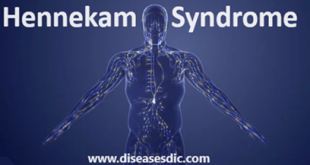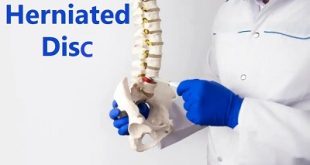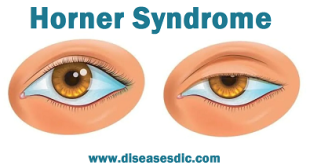Description
Hashimoto’s Disease or Hashimoto’s Thyroiditis is a condition in which your immune system attacks your thyroid, a small gland at the base of your neck below your Adam’s apple. The thyroid gland is part of your endocrine system, which produces hormones that coordinate many of your body’s functions. Inflammation from Hashimoto’s disease, also known as chronic lymphocytic thyroiditis, often leads to an underactive thyroid gland (hypothyroidism). Hashimoto’s disease is the most common cause of hypothyroidism.
It primarily affects middle-aged women but can also occur in men and women of any age and in children. Doctors test your thyroid function to help detect Hashimoto’s disease. Treatment of Hashimoto’s disease with thyroid hormone replacement usually is simple and effective.
Mechanism of Hashimoto’s Thyroiditis
The thyroid gland makes two main hormones – thyroxine (T4) and tri-iodothyronine (T3). Two brain structures, the pituitary gland and the hypothalamus, regulate the hormones released by the thyroid gland. The steps in the process are:
- The chain of command begins at the hypothalamus, which prompts the pituitary gland to make a chemical called thyroid-stimulating hormone (TSH).
- The pituitary gland checks the amount of T4 and T3 in the blood and releases TSH if the T4 and T3 levels need to be topped up.
- \The thyroid gland secretes T4 and T3 depending on the ‘order’ it receives from the pituitary gland. Generally speaking, the more TSH the thyroid receives, the more T4 and T3 it secretes.
- The pituitary gland may order the thyroid gland to make T4 and T3 but, in the case of Hashimoto’s disease, the thyroid gland can’t deliver.
- The immune system creates antibodies that attack thyroid tissue. The thyroid gland becomes inflamed (thyroiditis) and thyroid cells become permanently damaged, which hampers the thyroid’s ability to make T4 and T3.
- In response, the pituitary gland secretes more thyroid-secreting hormone (TSH).
- The thyroid may enlarge (goitre) as it attempts to obey the pituitary gland.
Causes of Hashimoto’s Thyroiditis
The exact cause of Hashimoto’s is not known, but many factors are believed to play a role. They include:
- People who get Hashimoto’s often have family members who have thyroid disease or other autoimmune diseases. This suggests a genetic component to the disease.
- Hashimoto’s affects about seven times as many women as men, suggesting that sex hormones may play a role. Furthermore, some women have thyroid problems during the first year after having a baby. Although the problem usually goes away, as many as 20% of these women develop Hashimoto’s years later.
- Excessive iodine. Research suggests certain drugs and too much iodine, a trace element required by your body to make thyroid hormones, may trigger thyroid disease in susceptible people.
- Radiation exposure. Increased cases of thyroid disease have been reported in people exposed to radiation, including the atomic bombs in Japan, the Chernobyl nuclear accident, and radiation treatment for a form of blood cancer called Hodgkin’s disease.
Who is at risk for Hashimoto’s thyroiditis?
Things that may make it more likely to you for to get Hashimoto’s thyroiditis are:
- Being a woman. Women are about 7 times more likely to have the disease. Hashimoto’s thyroiditis sometimes begins during pregnancy.
- Middle age. Most cases happen between 40 to 60 years of age. But it has been seen in younger people.
- The disease tends to run in families. But no gene has been found that carries it.
- Autoimmune diseases. These health problems raise a person’s risk. Some examples are rheumatoid arthritis and type 1 diabetes. Having this type of thyroiditis puts you at higher risk for other autoimmune illnesses.
What are the symptoms of Hashimoto’s disease?
Some people may not have any symptoms at first. As the disease slowly progresses, the thyroid gland becomes enlarged (a condition called a goiter). A goiter is a common first sign of Hashimoto’s disease. A goiter is painless, but can create a feeling of fullness in the throat, and can make the front of your neck look swollen.
Other symptoms of Hashimoto’s disease that develop over time include:
- Tiredness (fatigue)
- Weight gain
- Feeling cold
- Joint stiffness and muscle pain
- Constipation (trouble having a bowel movement)
- Depression
- Puffy eyes/face
- Dry skin
- Thinning hair/hair loss
- Heavy or irregular periods
- Difficulty becoming pregnant
- Memory problems/difficulty thinking or concentrating
- Slow heartbeat
Complications related to Hashimoto’s Thyroiditis
If left untreated, Hashimoto’s thyroiditis can cause complications, some of which can be severe. These can include:
- Heart problems, including heart failure
- Anemia
- Confusion and loss of consciousness
- High cholesterol
- Decreased libido
- Depression
- Myxedema
- Birth defects
- Goiter
Hashimoto’s can also cause problems during pregnancy. Recent researchTrusted Source suggests that women with this condition are more likely to give birth to babies with heart, brain, and kidney defects. In order to limit these complications, it’s important to monitor thyroid function over the course of pregnancy in women who have thyroid problems.
How is Hashimoto disease diagnosed?
Your doctor will perform a physical examination and order blood tests to measure your hormone levels; we collectively call these labs thyroid function tests (TFTs) – TSH, free T4, and total T3.
- TSH test: TSH is hormone released from your pituitary gland when there is not enough thyroid hormone in the system. TSH will be high if there is not enough thyroid hormone in the system. Normal ranges for TSH vary lab by lab and also are dependent on age (TSH normally rises as we age).
- Free T4 and total T3 test: T3 and T4 are thyroid hormones. A low level of free T4 and/or T3 test also suggest hypothyroidism
- Thyroid peroxidase (anti-TPO) antibody blood test: This test detects the presence of antibodies directed against the thyroid. Most people with Hashimoto disease have these antibodies, but people whose hypothyroidism is caused by other conditions may not. TPO antibodies may also be present in normal people without hypothyroidism.
Treatment for Hashimoto’s Disease or Hashimoto’s Thyroiditis
Depending on the patient’s condition, treatment comprises of observation and medications. If the patient is not suffering from any hormone deficiency and if the thyroid function is normal, then there is no need for medications right away and your physician may propose a wait-and-see approach. If the thyroid is not functioning normally; and if the patient has symptoms, then medications are started and more often than not, they are needed to be taken for lifetime. The following medications are given:
Synthetic Hormones
As there is deficiency of the thyroid hormone, replacement therapy is done with synthetic thyroid hormone, such as levothyroxine (Synthroid, Levoxyl etc.) which is a synthetic thyroid hormone. Synthetic levothyroxine is same as thyroxine, which is naturally produced by the thyroid gland. Synthetic levothyroxine helps in restoring normal hormone levels and reverses or negates the hypothyroidism symptoms.
Dosage Monitoring
Depending on the TSH level, which should be checked every six to 12 months, the dosage needs to be changed accordingly. It is very important to monitor the dosage of levothyroxine. To do this, your physician will be checking your TSH level within a few weeks of starting the treatment, as excessive thyroid hormone causes increase in bone loss, resulting in increased risk of osteoporosis. Overdose of levothyroxine can also lead to arrhythmias (heart rhythm disorders).
In patients with CAD or coronary artery disease, the doctor will start the treatment with a low dose of the medication and slowly increase the dose, so that the heart can adapt to the metabolism. When used in the right amount of dosage, there are literally no side effects from levothyroxine. It is important to continue with the same brand and let the doctor know if you have changed the brand. It is also important to take the dose regularly and not miss any doses or abruptly stop the medicine, as this will result in recurrence of all the signs and symptoms of this disease.
Drug Interaction
There are some supplements, medications and food groups, which can affect the way levothyroxine is absorbed. To avoid this, levothyroxine should be taken at least a minimum of four hours after or before taking other medications. It’s important to let your doctor know if you are taking any huge amounts of a high-fiber diet or soy products or any of the following things:
- Supplements, such as calcium and iron; and multivitamins containing iron.
- Medication for lowering the level of blood cholesterol, such as Prevalite (cholestyramine).
- Antacids which contain aluminum hydroxide.
- A drug used for preventing high blood potassium levels, i.e. sodium polystyrene sulfonate.
- Sucralfate, which is medication given for treatment of ulcers.
Prevention of Hashimoto’s Thyroiditis
Unfortunately, there is no known way to prevent Hashimoto’s thyroiditis (or inflammation of the thyroid gland. But on the bright side, this disorder is very treatable. The sooner you get diagnosed, the sooner you can start receiving treatment.
 Diseases Treatments Dictionary This is complete solution to read all diseases treatments Which covers Prevention, Causes, Symptoms, Medical Terms, Drugs, Prescription, Natural Remedies with cures and Treatments. Most of the common diseases were listed in names, split with categories.
Diseases Treatments Dictionary This is complete solution to read all diseases treatments Which covers Prevention, Causes, Symptoms, Medical Terms, Drugs, Prescription, Natural Remedies with cures and Treatments. Most of the common diseases were listed in names, split with categories.







